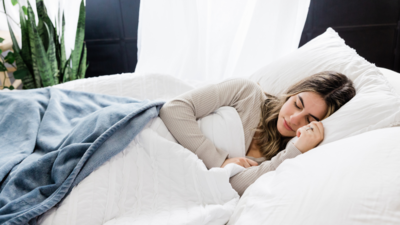You sleep too much? Here’s why that could be bad for your health

TL;DR
Short sleep (<7h) and long sleep (≥9h) are both linked to health risks.Oversleeping often flags underlying health or quality problems it doesn’t automatically make you unhealthy.Most adults do best with 7–9 hours of high-quality sleep on a regular schedule.Chronic oversleeping + fatigue? Don’t brush it off.Sleep isn’t just about resting; it’s about thriving. So if you spot patterns of oversleeping, use it as a sign, not a solution.We all know the health risks of skimping on sleep—heart issues, brain fog, mood dips. But what about sleeping too much? Recent research suggests that clocking in more than nine hours a night may pose its own set of dangers. Let’s unpack the evidence and find out what that extra hour might be trying to tell us.
Sleep is essential, but too much can be a red flag
Sleep, along with diet and exercise, forms one of the core foundations of health. It’s when our bodies repair muscles, form memories, regulate emotions, and balance hormones. In Australia, the Sleep Health Foundation recommends that most adults aim for 7–9 hours per night, though some thrive on slightly less—no harm done if sleep remains high quality and daytime energy stays up
The health risks of too little and too much sleep
A meta-analysis tracking over 2.1 million people found those logging under 7 hours faced a 14% higher mortality risk, while those sleeping 9 or more hours had a 34% higher mortality risk compared to the 7–8-hour sweet spot. A previous review of 74 studies confirmed similar findings: Oversleeping was tied to a 14% increase in death risk over time.
Oversleeping and specific health issues
Spending too much time in bed doesn’t just affect your lifespan—it may damage your mind and body along the way:Brain function: Adults averaging 9+ hours performed worse on memory, executive function, and spatial tests, particularly if depression was presentChronic diseases: Excess sleep has been linked to depression, chronic pain, metabolic issues, weight gain, and heart diseaseHeart and stroke risk: A Semmelweis University meta-analysis echoed these results: short and long sleep both increased all-cause mortality and stroke risk, with up to 46% higher stroke mortality in long sleepers especially women
Oversleeping: Cause or effect?
This is crucial: the link isn’t necessarily causal. Oversleeping might stem from:Underlying illness—people with chronic conditions like heart disease, depression, diabetes, or pain often sleep more, either for recovery or due to medication side effectsPoor sleep quality—spending hours in bed doesn’t guarantee restorative sleep. Sleep apnea or frequent disruptions can prompt a longer time spent trying to catch upLifestyle and habits—inactive lifestyles, daytime naps, or irregular schedules can disrupt rhythms and lead to oversleepingPut simply, oversleeping is often a symptom of other things, not the cause.
Age and sleep: Context matters
How much sleep you need shifts with age. Teens often need 8–10 hours, while older adults typically still fall into the 7–9 hour range. Still, whether you’re 18 or 65, most adults do best in that middle zone. If you need more than nine hours just to feel functional, it’s worth probing why.
Quality beats quantity
The feeling of rest matters more than the clock alone. Spend less time tossing, turning, or waking up groggy? Good. Do you spend inordinate time trying to fall asleep or nap, yet still feel tired? That’s a clueA sleep schedule that is consistent, going to bed and waking up around the same time, outweighs random hours in bed
What should you do if you’re oversleeping?
Track your sleep and energy. Get real with your hours and how you feel. Journals, apps, or wearables can help.Don’t ignore the pattern. If you regularly need 9+ hours and feel sluggish, it’s worth checking in.Talk to your doctor. A simple visit could uncover depression, sleep apnea, thyroid problems, nutrient gaps even a sleep study might helpBoost sleep habits:
- Keep a consistent schedule
- Create calm evening rituals
- Avoid late-night screens, caffeine, and alcohol
Why we worry less about oversleeping
The public conversation often focuses on sleep deprivation and rightly so. Rising rates of insomnia and short sleep are serious public health concerns. But we shouldn’t dismiss long sleep as harmless especially if it’s chronic, excessive, or paired with fatigue, weight gain, mood struggles, or pain.








